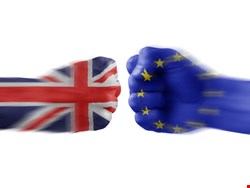
A memo released Friday by the EC makes it clear that the GDPR, although currently struggling, remains a high priority. EC vice-president Viviane Reding said, "I am confident we will be able to build on the momentum injected into the negotiations by the Greek Presidency at the last informal Council meeting in January. Seeing the latest progress, I will continue working with Ministers for an adoption of the data protection reform before the end of this year."
The memo sets out the Commission's position. "The Commission fully supports the Greek Presidency in achieving swift progress on the reform, in line with the commitment of European heads of state and government to adopt the new data protection legislation in a 'timely' fashion and in any event before 2015."
It is clear that although the December blow caused by Hubert Legal, head of legal services for the European Council, has scuppered Reding's hopes for formal adoption before the European elections in May, she does not consider it a fatal blow. Her aim is still get the GDPR adopted before the end of this year.
But the UK has always been a critic of the new data protection proposals. In May 2013, the UK data protection regulator, Information Commissioner Christopher Graham, published a report claiming that the GDPR will cost British business millions of pounds – a claim rejected by Viviane Reding.
Last Thursday, Theresa May made a written ministerial statement outlining her view of this week's council meeting. It includes, "The UK continues to believe that this proposal is far from ready for a general agreement, and that no such agreement can occur until the text as a whole has been approved. The proposal remains burdensome on both public and private sector organizations and the Government would not want to see inflexible rules on transfers outside the European economic area which do not reflect the realities of the modern, interconnected world."
She makes it clear that the UK will continue to work against the current GDPR proposals that have been largely agreed by the rest of Europe. But in adding reservations on data transfers 'which do not reflect the realities of the modern, interconnected world,' she also makes it clear that Britain would oppose any separate suspension of the existing safe harbor arrangement with the US.
A call for 'immediate suspension' of safe harbor will be voted on by the full European Parliament, as part of a report prepared by the Civil Liberties, Justice and Home Affairs Committee (LIBE), on 12 March.